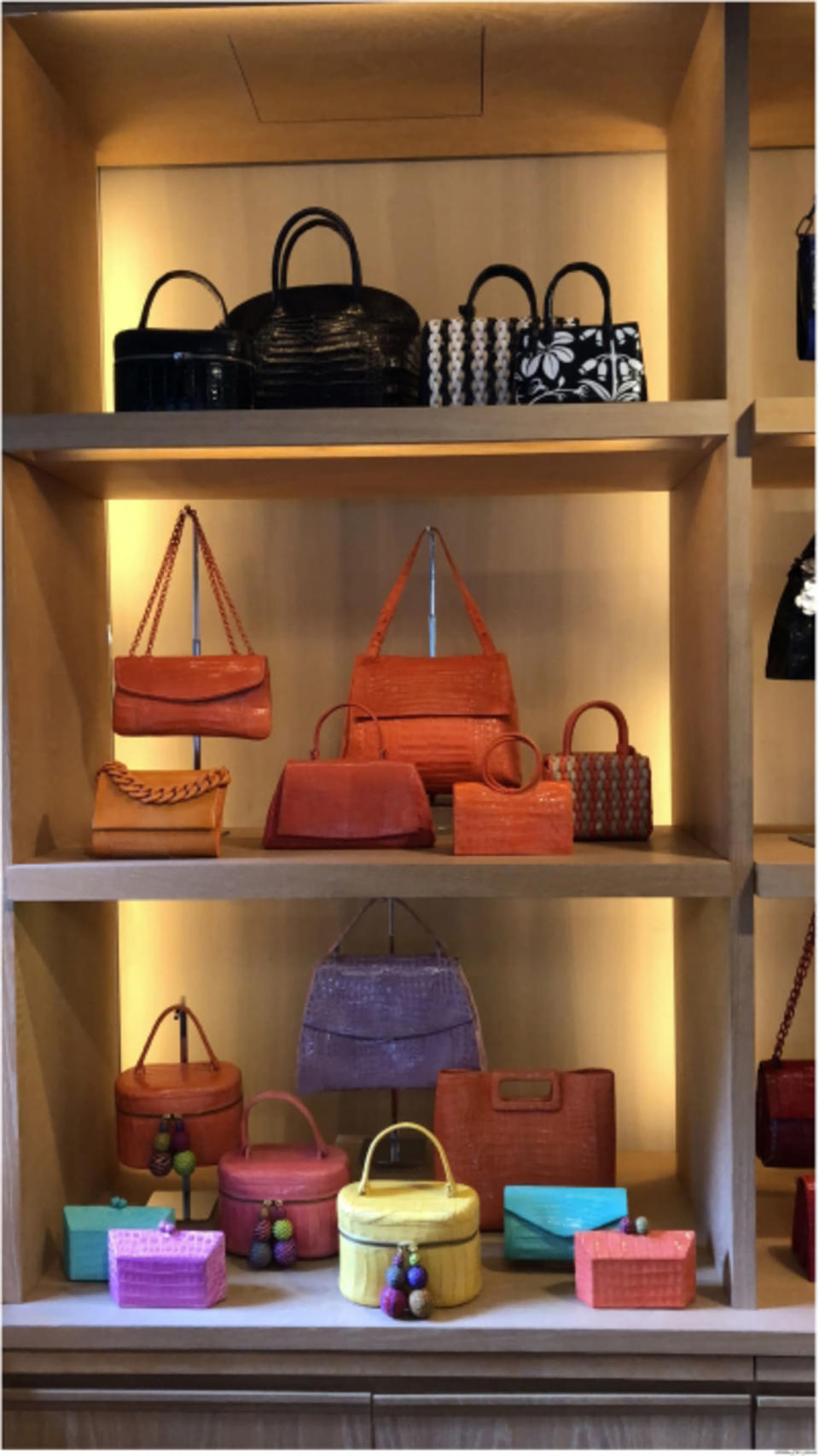Luxury handbag designer smuggled bags made out of protected python and caiman into U.S.
A Colombian handbag designer has been sentenced to 18 months in prison after federal prosecutors said she illegally smuggled handbags made from caiman and python skin — both protected species — to New York.
Nancy Teresa Gonzalez de Barberi, the founder of luxury handbag company Gzuniga Ltd., had been indicted in April 2022 on a charge of conspiracy and two counts of smuggling into the U.S. for illegally importing the bags from February 2016 to April 2019.
Gonzalez and her company had pleaded guilty to the federal charges in November 2023.
The Department of Justice said in a news release that Gonzalez made bags of caiman and python skin — both of which are protected by the Convention on International Trade in Endangered Species of Wild Fauna and Flora, an international agreement to protect wildlife signed by both the U.S. and Colombia.
Under the Endangered Species Act, the trade of such species isn't fully banned, but requires a permit issued by the host country to be cleared by U.S. officials upon importation.
Gonzalez, her company, and co-conspirators Mauricio Giraldo and John Camilo Aguilar Jaramillo were accused of bringing hundreds of designer purses, handbags and totes to the U.S. by “enlisting friends, relatives, and even employees of Gonzalez’s manufacturing company in Colombia to wear the designer handbags or put them in their luggage while traveling on passenger airlines,” prosecutors said.
Once in the U.S., the bags were then delivered or shipped to the Gzuniga showroom in New York “to be displayed or sold,” they added.

Gonzalez, Giraldo and Aguilar Jaramillo are all Colombian citizens who were extradited to the U.S. on the same charges.
Gonzalez was sentenced Monday to prison time with credit for time served, three years of supervised release and to pay a special assessment.
Her company was ordered to forfeit all handbags, banned for three years from any activities involving commercial trade in wildlife and sentenced to serve three years of probation.
Also on Monday, Giraldo was sentenced to time served, a year of supervised release and to pay a special assessment.
The other co-conspirator, Aguilar Jaramillo, is scheduled to be sentenced on June 27.
NBC News has reached out to attorneys for Giraldo for comment.
Sam Rabin, an attorney for Gonzalez, said Tuesday she was “the victim of selective prosecution.”
“While most major purse designers rush samples to fashion shows, sometimes without the proper paperwork, only she was chosen to be prosecuted by the Department of Justice,” Rabin said. “She employed hundreds of minority women who helped produced the handbags that she alone designed.”
He said the judge recognized her case “should had been handled administratively instead of by arrest and prosecution,” which is why her sentence amounts to a month in jail due to time served in Colombia awaiting extradition.
“She will not appeal her sentence. She wants to put this unfortunate chapter behind her and move on with her life,” Rabin said.
“This investigation uncovered a multi-year scheme that involved paid couriers smuggling undeclared handbags made of CITES-protected reptile skins into the U.S. to be sold for thousands of dollars," Edward Grace, the assistant director of the U.S. Fish and Wildlife Service’s Office of Law Enforcement, said in a statement.
"The Service will continue to seek justice for protected species exploited for profit, and we will hold accountable those who seek to circumvent international controls meant to regulate their sustainable trade," he added.
The case was investigated by the U.S. Fish and Wildlife Service Office (USFWS) of Law Enforcement in Valley Stream, New York, with assistance of the Miami Resident Agent in Charge Office of USFWS. The case was prosecuted by the U.S. Attorney's Office of the Southern District of Florida and the Justice Department’s Environmental Crimes Section.
This article was originally published on NBCNews.com

